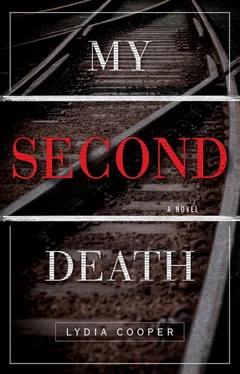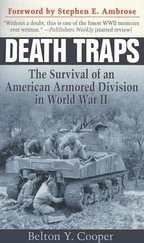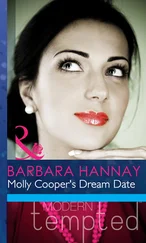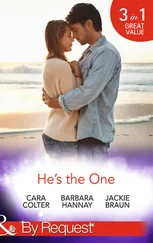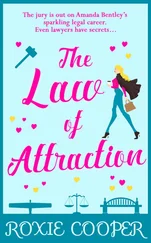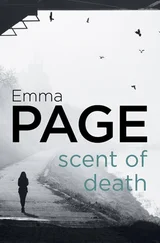He sets the phonebook on the metal chair and dabs the brush into paint and, with violent strokes, he slashes out the shapes of the brown-fleshed apple, the half-empty jug of milk, the can opener, the rusty can of Campbell’s tomato soup, empty, rolled on its side. His hand is as neatly vicious with a paintbrush as with a knife blade.
I watch him paint for a while. Then I edge behind him and get to the fridge. I pull out a can of Sprite and pop the tab. The soda is cold and tingles against the roof of my mouth.
I look at the canvas and see that the off-white paint he used to sketch the objects was not an outline of the still-life, like I’d thought, but the shadows. He is dabbing ochre paint onto the canvas, and emerging from the gray-white shapes is the photographically precise image of the speckled and aging yellow apple.
“That milk is going to go bad.”
He doesn’t seem to hear me. He raises a shoulder to rub his jaw, eyes fastened to the canvas.
After a while I wander back to my bedroom. I get my laptop and go into the living room. I sit on the couch, balance the computer on my lap, and check my email, and then I download some iTunes.
When I finish the Sprite I get up and go into the kitchen. The linoleum is covered in dried paint, flecks of amber, ochre, sienna, bronze, puce, chartreuse. My feet crackle on the shell of dried color.
The still life leans against the sink cabinet. Its canvas surface glistens with wet paint. He is sitting on the metal folding chair now with a large sketchpad on his knees and his hand is moving lazily. I assume that he’s wasting time, waiting for the paint on the canvas to dry so that he can start another layer.
But when I go behind him I see that he is sketching with a charcoal pencil, the slowly emerging lines forming a woman’s face. The face has a strange expression, eyes stretched wide, lips slightly parted, as if yearning achingly for something just out of reach. It looks like my face but the expression is one I’ve never seen in the mirror.
I crumple the Sprite can and toss it in the recycle bin. I go into the living room.
“What?” he says. “No one’s allowed to look at you?”
“Go fuck yourself.”
“Trust me,” he says. “I do that plenty.”
I can’t decide if that’s funny enough to smile or not. I turn on the TV and flip through channels to find a PBS documentary on cheetahs. I’ve always liked cheetahs. I like watching them move, oil through water.
“How was your Thanksgiving?”
“It was charming,” I say. “Idyllic, really. Charles Dickens called to ask if he could write us up as the sequel to his A Christmas Carol , but he decided in the end our family holiday was too sweet to be believable to the general public.”
He laughs. I can hear the scrape of the charcoal across his paper so I know he hasn’t stopped sketching.
“How about yours?”
“About the same.”
I stretch my arms behind my head and yawn.
“To be fair,” I say, “my family’s okay. It’s not their fault I’m an asshole.”
“You’re not an asshole.”
There’s a short silence.
“Well,” I say. “I’m no picnic.”
His hand stops moving. He looks up at me. “Don’t do that. I know what I’m talking about, okay? It’s not like you own majority shares of the asshole market.”
The heat of his eyes makes me uncomfortable. I turn back to the PBS show. I watch the big orange cats snaking through long grass.
“Sad isn’t the same as evil,” I say.
Aidan slams the sketchbook on the counter.
I jump.
He walks into his bedroom. The door bangs shut. The windowpane rattles.
Then the door opens and he comes back out.
“You think you’re the only one,” he says.
I turn around and stare at him.
He’s standing in his paint-stained shirt with his arms clenched around his chest. “You think you’re the only one who hates people. Well, I hate them, too. And yes, I fantasize about dousing them in paint thinner and lighting a cigarette. I hate people.”
The apartment is silent except for the sound of his ragged breathing and the quiet tinny British voice telling us to notice how the female cheetah has spotted her prey.
He sucks in a breath and looks down at the floorboards.
“Well,” I say. “Happy Turkey Day to you, too.”
The skin under his left eye twitches.
“So, what happened? You want to talk about it?”
He takes a breath, almost tentatively, like someone who’s afraid of inhaling smoke. Then his arms unfold, and he comes into the living room and sits down on the couch and leans his head back. He pulls his legs up onto the couch. Brown and yellow flecks splatter his jeans legs. The bruises on the inside of his arm are also brownish-yellow.
“Let me see,” I say. “Your sister with the big fucking house was pretty civil to me, considering what I said to her. I don’t see her pulling any Addams family shit. Your father owns a used car lot, so yeah, he’s probably kind of a douche, but I doubt he’s Genghis Khan. My guess is you had a great big family dinner and everyone had a great time and no one went with you to Harvest Home afterwards?”
His face eases, the muscles going slack.
“Really? I was right?” I grin. “What do you know. I’m getting pretty good at this relating-to-people shit, you think?”
The tragic tilt to his eyebrows, the softness around his mouth. His expression is an artist’s caricature that draws out the secrets inside a person and transforms them into some primary-colored, obnoxiously obvious distortion: Aidan’s face is a caricature of innocence. And I understand suddenly. He is not crazy. He is sane, he is ordinary, he is kind. He is not — cannot possibly be — a killer.
And, honestly, there has never been any real evidence that he is the arsonist-killer. I suppose I have known from the time I saw his neat block-print handwriting on the legal pad, so different from the handwriting on the pink message slip. But I didn’t think about it. I didn’t think about what it meant.
I feel the emptiness of infinite space inside my skin. I never realized how much I wanted him to be the killer. It would have made sense. A mathematically precise equation. And also — and also it would mean that he was like me, that there was someone else with that need to slice skin, to extract suffering. I would not be so alone. But Aidan’s not a killer. He’s just a decent kid with an autistic sister and a dead mom.
I feel so stupid.
“Look,” I say, and my voice sounds alien, sad. “See, I hate everyone, regardless of race, gender, creed, or orientation. I hate good people, like you, I hate bad people, like Hitler, and I hate ordinary shitheads like your old man and your sister. Hate has nothing to do with love, for me. You see the difference between us? The subtle distinction?”
He turns suddenly and reaches out his hand.
I stop talking. My eyes skitter sideways, watching his fingers track in slow-motion.
“No, don’t.” It comes out a whisper. “ Please .”
His fingers, cold, callus-ridged, brush the back of my hand where it rests on my knee. And then he slides his fingers around mine and grips tight.
I swallow, choking on a gag, and close my eyes.
There is a long silence.
And then I say, “I think I’m going to hurl.” I make it to the kitchen sink before vomiting sugary bile.
I teach my classes and sneeze, wipe my nose on my wrist, and keep teaching. A new muffler comes in and I spend a few afternoons under my parents’ carport fixing the Chevelle.
Nothing seems to matter. Dr. Telushkin tells me my latest chapter looks promising. The semester draws to an end.
Читать дальше
